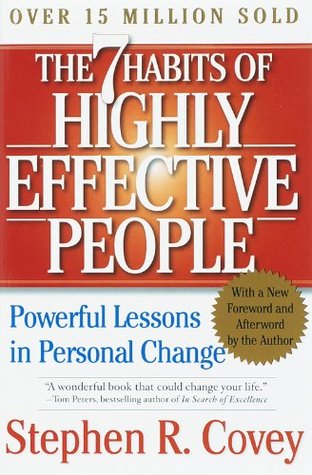The book you’ve been working on tirelessly for so long is finally done and ready to be sent to the presses. Time to sit back and relax, because the hard work is over, right? Nope, negative, not a chance! What many authors fail to realize is that the actual creation of their book is just one hurdle. Marketing and selling the book is an entirely different undertaking that they can’t skimp and scrimp on, or all of the hard work they’ve put into their creation will be in vain.
Although some of these mistakes may seem obvious, they're actually quite common. Remember that hindsight is 20/20, so it's easy to look back and realize what you should and should not have done after the fact. While you’re living through a certain situation, it may not be so easy to see mistakes that are right in front of your eyes. That’s why we’ve compiled this list of the 7 common book marketing mistakes authors should avoid, so you don’t fall into the trap of looking back and saying ‘I should have done things differently.’
1. Don’t be too pushy
Yes, you want to sell your book. But trying to push it on anyone and everyone is a totally ineffective way of upping your sales. No one likes a ‘salesy’ salesman, someone who's trying too hard to sell something. If someone is interested in your book, believe me, they’ll take the time to read about it and buy it without you having to be pushy with it.
Getting some help using online resources to learn about the dos and don'ts of marketing and selling your book online. If you need a little help finessing your content, the team at UK Writings will give you a hand in the right direction.
2. Have your sequel on the go
You may not learn everything you need to know with the launch of your first book. But, the lessons you do learn can be applied to your second, third and all other books in your future. Have your second book at least underway while you’re marketing your first. Once your first book gains some traction, the second one can continue the momentum and will be easier to market and sell to those who loved the first.
Start building up the hype for your first book and keep the interest alive for future books with the help of an automated email service, such as Mail Chimp. You’ll be able to easily keep your audience in the loop about updates with your books, so the excitement doesn’t die down before your launch date.
And, if you want to get your target audience excited about an upcoming publication, first get readers of influence to get excited. NetGalley lets those readers discover new books first, read them online and give their feedback.
3. Ask for help when you need it
Seems fairly straightforward, right? We see others stressed or struggling and ask ourselves why they don’t just ask for help. But, when we’re in that situation, our pride can sometimes take over and our ego reassures us that we’re able to do everything on our own. It’s rare that we’re truly able to do everything on our own, so you shouldn’t be afraid to ask friends, family, colleagues or anyone else who’s able to help you with something.
Not only will asking for help make it easier to get more done faster, but you can also delegate tasks that you may not be particularly good at to someone more qualified. If you’re not the strongest at creating marketing campaigns, hand it off to a professional, like the ones at Essayroo, so you know the job will get done by someone in the business. Or, if you just need a bit of assistance with tweaking the grammar of your marketing writing, the library of resources at Australian Help and Academized can guide you.
4. Edit the heck out of your description
Think about how many hours you’ve spent looking over and fine tuning each sentence of your book. It’s free of any grammar or spelling errors, and it looks flawless. Now, think about how embarrassing and unprofessional you’ll look with a product description with a mistake in it.
It may not seem like a big deal to some – it’s not in the book, after all – but, this may be the first impression your readers are getting of you and your book. Seeing an error right there in the description could call into question whether your book is worth the buy. Have a second set of eyes look over your description for errors. A professional proofreader from Boomessays will pick out any mistakes and make suggestions for improvements.
What if the site you’re selling on has a cap on words in your description, and you unknowingly exceed that? Will only part of your description appear? Easy Word Count can quickly ensure you’re staying in your limitations. And, if your description references any outside sources, you will definitely want to ensure they’re cited absolutely perfectly, with the help of Cite It In.
5. Set goals you can actually reach
Not only should you be setting realistic goals that are measurable, but you should also have a detailed plan of attack for achieving those goals. Without a well thought out plan, you could end up spending a lot of time and money on failed attempts to reach your goals.
If your plan includes a social media campaign, Buffer is a great place to start planning how you’ll share your book information through social media outlets. You can also set up your marketing efforts, whether you’re using videos, articles, images or more, to be easily shared with ShareThis. Just one piece of code lets you enable buttons to help share and spread your message to everyone.
6. Label yourself properly
There’s a lot of competition out there, so carefully categorizing your book can greatly impact the level of success it sees. Don’t be afraid of putting a more specific label on the genre of your book. Sometimes the more specific you are with the category your book falls into, the more success you’ll see because you’ve get yourself apart from one crowded genre.
The better you are at labeling your book into specific genres, the easier readers will be able to find it when they’re searching through sites such as Good Reads, to get new recommendations based on similar books, or through BookCrossing for recommendations from other readers.
7. Don’t just focus on one thing
Remember that your readers could be anywhere. Focusing on just one social media platform or one marketing outlet means you could be missing a lot of potential readers. Embrace everything available to you, so you’re able to share your book with everyone who will enjoy it. And, keep up to date with what people are talking about, with regards to the genre of your book using Google Alerts. You can see what people are saying and where they’re saying it, so you can market directly to them and focus on the things they’re interested in.
Once the hard work of writing a book is all done, the next difficult step is successfully marketing and selling that book. Put as much hard work into this second step as you did into the creation of your book and steer clear of making these 7 common mistakes that many authors before you have made.
 Gloria Kopp is a web content writer and an elearning consultant from Manville city. She graduated from University of Wyoming and started a career of creative writer, now she works as an editor at Bigassignments. Besides, she is a regular contributor to such websites as Studydemic, HuffingtonPost, Resumention, Engadget, etc.
Gloria Kopp is a web content writer and an elearning consultant from Manville city. She graduated from University of Wyoming and started a career of creative writer, now she works as an editor at Bigassignments. Besides, she is a regular contributor to such websites as Studydemic, HuffingtonPost, Resumention, Engadget, etc.




